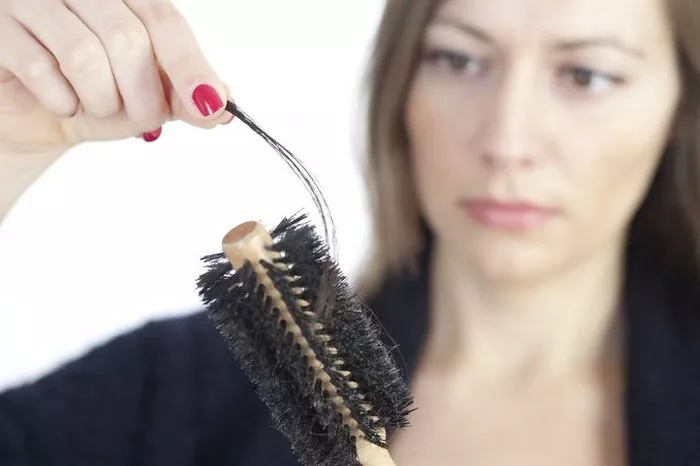Menopause is a natural biological process marking the end of a woman’s reproductive years, typically occurring in their late 40s or early 50s. While this transition brings about various changes in the body, one concern that many women face is thinning hair. The question that often arises is whether thinning hair can regrow after menopause. In this comprehensive guide, we will explore the factors contributing to hair thinning during menopause and discuss potential strategies for regrowth.
Understanding Menopausal Hair Changes
The hormonal fluctuations that accompany menopause can significantly impact the hair growth cycle. Estrogen, a hormone that plays a crucial role in maintaining hair health, tends to decrease during menopause. This decline can contribute to hair thinning, reduced hair diameter, and a potential increase in hair shedding. Additionally, the sensitivity of hair follicles to androgens (male hormones) may increase, further influencing hair density.
The Role of Genetics
Genetics play a pivotal role in determining hair characteristics, including thickness and pattern of hair loss. If there is a family history of thinning hair or androgenetic alopecia, menopausal changes may exacerbate the condition. Understanding your genetic predisposition can provide insights into the potential for hair regrowth after menopause.
Nutritional Support for Hair Health
Nutritional deficiencies can contribute to hair thinning, and addressing these deficiencies may aid in regrowth. Key nutrients for hair health include vitamins A, C, E, and D, as well as biotin, iron, and omega-3 fatty acids. A balanced diet rich in these nutrients can support overall health and potentially promote hair regrowth. Consult with a healthcare professional to determine if supplements are necessary based on individual nutritional needs.
Hormone Replacement Therapy (HRT) and Hair Growth
Hormone Replacement Therapy (HRT) is a medical intervention that aims to alleviate menopausal symptoms by supplementing estrogen and, sometimes, progesterone. Some studies suggest that HRT may have a positive impact on hair thickness and regrowth in menopausal women. However, the decision to undergo HRT should be carefully considered, as it comes with potential risks and benefits. Consultation with a healthcare provider is essential to evaluate individual health factors and determine the appropriateness of HRT.
Topical Treatments and Medications
Various topical treatments and medications are available to address hair thinning and promote regrowth. Minoxidil, an over-the-counter topical solution, is one such option. Studies indicate that minoxidil can be effective in promoting hair regrowth in women experiencing androgenetic alopecia. Prescription medications, such as finasteride, may also be considered under the guidance of a healthcare professional. It’s crucial to note that the efficacy of these treatments can vary among individuals.
Lifestyle Modifications for Hair Health
Incorporating healthy lifestyle habits can positively impact overall well-being and may indirectly contribute to hair regrowth. Managing stress through techniques like meditation or yoga can help mitigate the effects of stress-related hair shedding. Additionally, avoiding harsh styling practices, such as tight hairstyles or excessive heat styling, can prevent further damage to fragile, thinning hair.
Platelet-Rich Plasma (PRP) Therapy
Platelet-Rich Plasma (PRP) therapy is a regenerative treatment that involves extracting a small amount of a patient’s blood, processing it to concentrate platelets, and then injecting the PRP into the scalp. Some studies suggest that PRP therapy may stimulate hair follicles and promote hair regrowth. While research is ongoing, individuals considering PRP therapy should consult with a qualified healthcare professional to discuss potential benefits and risks.
Acceptance and Hairstyling Tips
While exploring various options for regrowing thinning hair after menopause, it’s essential to embrace self-acceptance and explore hairstyles that complement your current hair condition. Consulting with a hairstylist experienced in working with thinning hair can provide insights into flattering cuts and styles that enhance your overall appearance.
See Also: Choosing the Right Shampoo for Telogen Effluvium: A Full Guide
Conclusion: Navigating the Journey
Thinning hair after menopause can be a challenging aspect of the natural aging process for many women. While complete reversal of thinning may not always be possible, there are diverse strategies and interventions that offer hope for regrowth and improved hair health. Understanding the underlying factors, consulting with healthcare professionals, and exploring personalized approaches can empower women to navigate this journey with confidence and grace. Remember, every individual is unique, and finding the right solution often involves a combination of approaches tailored to specific needs and preferences.


